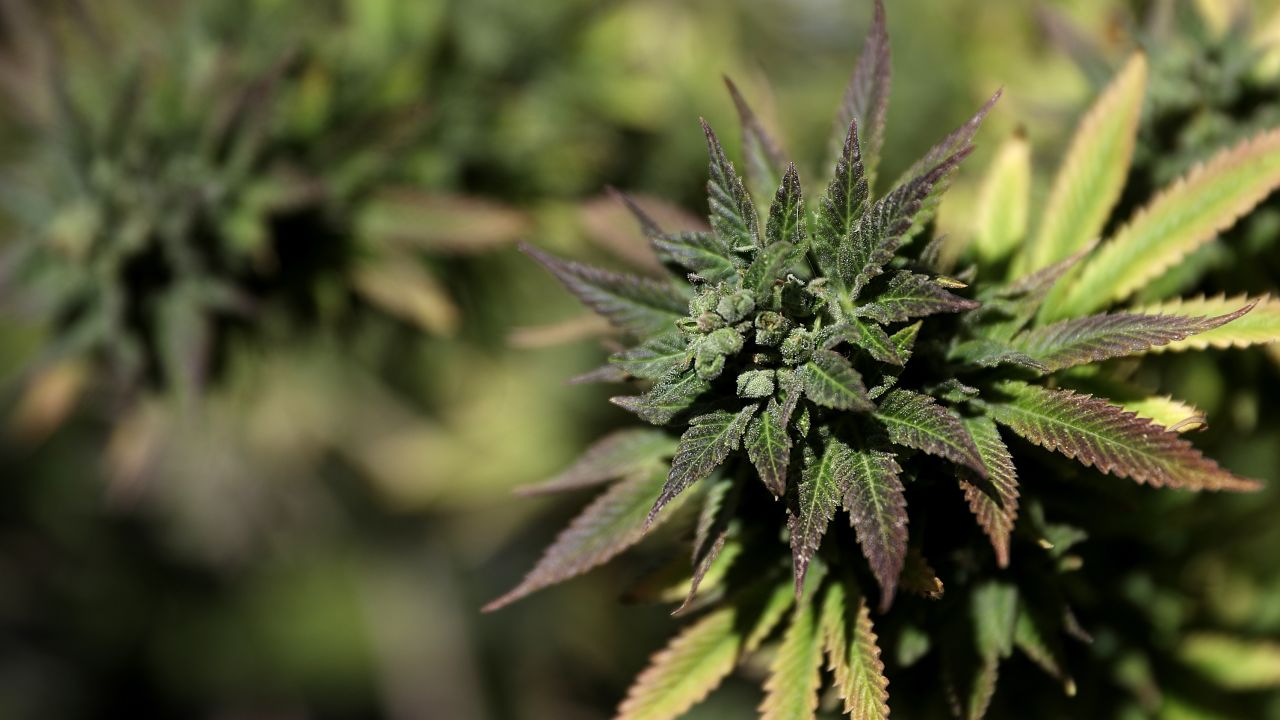Editor’s Note: David L. Nathan, MD is a psychiatrist, educator and the founder and past president of Doctors for Drug Policy Reform (d4dpr.org). Peter Grinspoon, MD is a primary care doctor and cannabis specialist at Harvard Medical School. He is the author of the recent book, “Seeing Through the Smoke: A Cannabis Expert Untangles the Truth About Marijuana,” and a board member of Doctors for Drug Policy Reform. The views expressed in this commentary are their own. View more opinion on CNN.
Of the many harms attributed to cannabis use, few have garnered as much attention as the frightening association of cannabis with psychosis. From the 1936 exploitation film “Reefer Madness” to a recent article in the Wall Street Journal, the media has covered the topic extensively and, at times, hyperbolically. Still, the question remains: Does cannabis truly cause psychosis and related diseases such as schizophrenia — or is this another overblown claim?


The link between cannabis use and psychosis is well-established through research. This association is not in doubt. However, as we all learn in high school science, correlation does not imply causation. Take a common example: Ice cream consumption and drownings both increase in the summer months. They are unquestionably associated. But no one believes that one of these causes the other. It is especially important for us, as doctors, to untangle whether cannabis actually causes psychosis.
Let’s begin by defining “psychosis,” which is a break with reality, encompassing delusions, hallucinations and/or disordered thinking. Delusions can be of a paranoid or frightening nature. Psychotic episodes can persist from days to months or even years. Even a brief psychotic episode can indicate the beginning of a lifelong psychiatric condition such as bipolar disorder or schizophrenia.
Over the decades of our clinical work, we have seen numerous cases of psychosis that first emerged in the context of cannabis use. On one hand, this isn’t surprising, as people are more likely to start using cannabis at the same age that they’re at greatest risk for a first episode of psychosis — in their teens or 20s. However, we’ve seen too many cases in which the timing was just too close to dismiss as a mere coincidence.
It may be easy to assert that cannabis use causes psychosis or schizophrenia without looking more closely at the correlation between the two, especially for those who want to stigmatize cannabis use. However, available evidence doesn’t support such a simplistic view, as there are several other plausible connections.
For example, people at risk for psychosis may self-medicate with cannabis before they develop a psychotic disorder. In this scenario, before the onset of psychosis, the patient may experience anxiety and use cannabis to try to feel better. While cannabis might not help, it often doesn’t actually cause the psychosis. Paradoxically, symptoms of emergent psychosis could lead people to self-medicate with cannabis meaning that, in some cases, the psychosis is the cause of the cannabis use, not the other way around.
Secondly, cannabis could trigger or worsen psychosis without being a primary cause. We know that other drugs, including psychostimulants, steroids, psychedelics and alcohol can trigger a brief substance-induced psychosis, which can last for days to months. Still, of all the drugs associated with this uncommon kind of psychosis, cannabis is the most common culprit.
Among people with substance-induced psychosis, those who use cannabis are most likely to eventually progress to schizophrenia. So, it appears as if the cannabis is causing not just the transient psychosis, but schizophrenia as well. At the same time, studies show that these patients have a higher genetic risk for schizophrenia, meaning that cannabis may simply trigger what the patient is predisposed to suffer from eventually.
To make things even more complicated, there is a third explanation of the relationship between cannabis and psychosis. There is some evidence that certain genes can predispose a person to both cannabis use and psychosis, a shared genetic basis.
So, where does all of this leave us?
It is unlikely that cannabis use by itself causes schizophrenia. The rates of schizophrenia have been stable for the last 70 years, while the rates of worldwide cannabis use have gone up from the hundreds of thousands in the 1950s to the hundreds of millions today. If cannabis caused schizophrenia, the rates of schizophrenia would have risen alongside the thousand-fold increase in cannabis use, and they haven’t.
Still, if cannabis can precipitate the onset of schizophrenia earlier in vulnerable individuals, that by itself is a public health issue. An earlier onset of schizophrenia means that patients have fewer years of biological and psychological growth before mental illness adversely affects brain development and adult coping skills. That could lead to worse outcomes, including more positive symptoms of schizophrenia such as paranoia and delusions.
Given the ongoing uncertainty around this issue, it would be wise for people with a personal history of schizophrenia or another psychotic disorder to avoid cannabis completely, unless there is a compelling medical reason to use it under close clinical supervision. Even people who have blood relatives with psychotic disorders or other severe mental illness should think twice and exercise a lot of caution before using cannabis. Also, while we don’t know whether potent forms of cannabis with very high THC (tetrahydrocannabinol) levels are more likely to trigger or worsen psychosis, they might be.
Interestingly, there is some evidence that CBD, the second most common cannabinoid molecule, has mild anti-psychotic activity. So, cannabis that has higher levels of CBD might have a lower risk of triggering psychosis, and cannabis that has CBD without any THC could actually benefit people with schizophrenia in combination with other antipsychotic medications. Here again the consumer should beware. The US Food and Drug Administration has not yet regulated CBD products, so untested products might contain more THC than the 0.3% limit that the law allows. CBD products should only be purchased from reputable companies that test their products through independent labs and share the results.
Get Our Free Weekly Newsletter
- Sign up for CNN Opinion’s newsletter
- Join us on Twitter and Facebook
Given society’s growing normalization and acceptance of cannabis, it is as important as ever to understand the actual benefits and risks that can accompany its use. People use cannabis to alleviate chronic pain, nausea and insomnia, among many other conditions.
Of course, no medications are entirely safe for everyone and all have potential side effects. We can make cannabis use safer by encouraging people to consume products with lower THC levels and higher CBD levels. Perhaps most importantly, we should encourage teens and young adults with risk factors of psychosis to delay their use of cannabis until they pass the age when the initial onset of psychotic disorders like schizophrenia is most likely. We shouldn’t jump to the conclusion that cannabis causes psychosis, but anyone who plans to use cannabis should know their personal risk factors and exercise caution accordingly.





